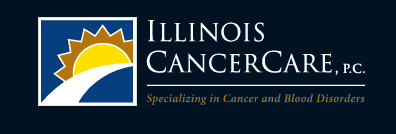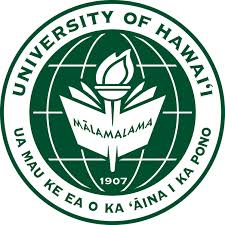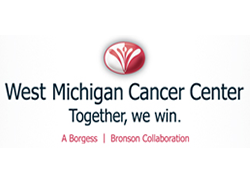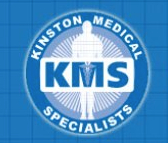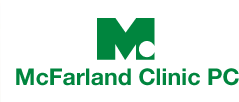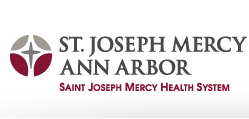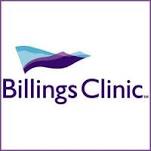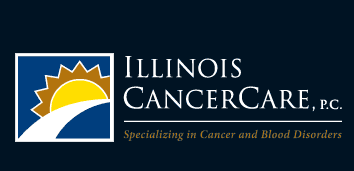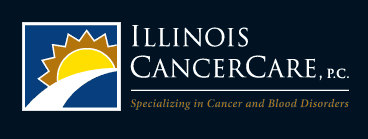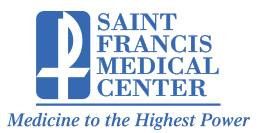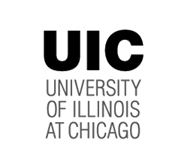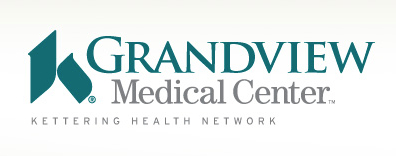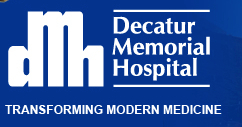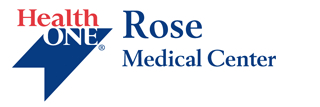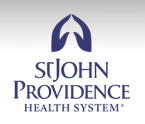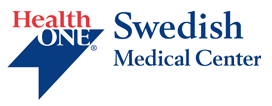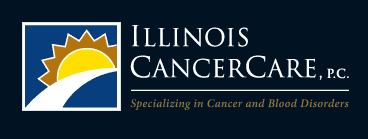Clofarabine or Daunorubicin Hydrochloride and Cytarabine Followed By Decitabine or Observation in Treating Older Patients With Newly Diagnosed Acute Myeloid Leukemia
| Status: | Active, not recruiting |
|---|---|
| Conditions: | Blood Cancer, Blood Cancer, Blood Cancer, Blood Cancer, Women's Studies, Hematology |
| Therapuetic Areas: | Hematology, Oncology, Reproductive |
| Healthy: | No |
| Age Range: | 60 - Any |
| Updated: | 12/15/2018 |
| Start Date: | December 28, 2010 |
Phase III Randomized Trial of Clofarabine as Induction and Post-Remission Therapy vs. Standard Daunorubicin &Amp; Cytarabine Induction and Intermediate Dose Cytarabine Post-Remission Therapy, Followed by Decitabine Maintenance vs. Observation in Newly-Diagnosed Acute Myeloid Leukemia in Older Adults (Age >/= 60 Years)
This randomized phase III trial studies clofarabine to see how well it works compared with
daunorubicin hydrochloride and cytarabine when followed by decitabine or observation in
treating older patients with newly diagnosed acute myeloid leukemia. Drugs used in
chemotherapy, such as clofarabine, daunorubicin hydrochloride, cytarabine, and decitabine,
work in different ways to stop the growth of cancer cells, either by killing the cells or by
stopping them from dividing. Giving more than one drug (combination chemotherapy) may kill
more cancer cells. It is not yet known which chemotherapy regimen is more effective in
treating acute myeloid leukemia.
daunorubicin hydrochloride and cytarabine when followed by decitabine or observation in
treating older patients with newly diagnosed acute myeloid leukemia. Drugs used in
chemotherapy, such as clofarabine, daunorubicin hydrochloride, cytarabine, and decitabine,
work in different ways to stop the growth of cancer cells, either by killing the cells or by
stopping them from dividing. Giving more than one drug (combination chemotherapy) may kill
more cancer cells. It is not yet known which chemotherapy regimen is more effective in
treating acute myeloid leukemia.
PRIMARY OBJECTIVES:
I. To evaluate the effect of clofarabine induction and consolidation therapy on overall
survival in comparison with standard therapy (daunorubicin [daunorubicin hydrochloride] &
cytarabine) in newly-diagnosed acute myeloid leukemia (AML) patients age >= 60 years.
SECONDARY OBJECTIVES:
I. To evaluate complete remission (CR) rates, duration of remission, and
toxicity/treatment-related mortality of clofarabine in comparison with standard therapy
(daunorubicin & cytarabine) in newly-diagnosed AML patients age >= 60 years.
II. To evaluate the feasibility of consolidation with reduced-intensity conditioning and
allogeneic hematopoietic stem cell transplantation from human leukocyte antigen
(HLA)-identical donors in patients who achieve a response to induction therapy, including the
incidence of successful engraftment, acute and chronic graft-versus-host disease,
transplant-related mortality, and its impact on overall survival in comparison to patients
receiving chemotherapy.
III. To evaluate the duration of remission and disease-free survival of patients in complete
remission following completion of consolidation therapy who are subsequently randomized to
receive scheduled low-dose decitabine maintenance in comparison with observation.
IV. To perform expression and methylation profiling on all patients receiving decitabine and
to correlate their integrated epigenetic signatures with response to decitabine.
V. To examine the epigenetic profiles of remission marrow in patients randomized to
observation vs. decitabine to determine whether epigenetic signature of apparently
morphologically normal bone marrow is predictive of relapse or response to decitabine
maintenance.
VI. To explore the possible association of response to clofarabine with ABC-transporter
P-glycoprotein (Pgp).
VII. To assess the intensity of expression of CXC chemokine receptor type 4 (CXCR4) on
diagnostic leukemia cells and to correlate this parameter with other established prognostic
factors.
VIII. To assess the entire spectrum of somatic mutations and affected pathways at diagnosis
of AML and elucidate the association between gene mutation and outcome.
IX. To examine the impact of smoking, obesity, regular acetaminophen use, regular aspirin
use, benzene exposure, living in a rural/farm environment and some other underlying exposures
and lifestyle factors associated with AML development on overall survival (OS).
X. To investigate potential correlative results between array comparative genomic
hybridization (CGH) findings and acute myeloid leukemia patient characteristics.
TERTIARY OBJECTIVES:
I. To compare health-related quality of life (QOL) (physical, functional, leukemia-specific
well-being) and fatigue in elderly AML patients receiving standard induction therapy with
those receiving clofarabine.
II. To measure the change in health-related QOL that occurs over time (within treatment
groups).
III. To comprehensively assess patient function at the time of study enrollment.
IV. To determine if components of a comprehensive geriatric assessment or QOL scales predict
ability to complete AML treatment.
V. To describe the impact of transplant on QOL in AML patients above age 60.
OUTLINE:
INDUCTION THERAPY: Patients are randomized to 1 of 2 treatment arms.
ARM I (STANDARD THERAPY): Patients receive daunorubicin hydrochloride intravenously (IV) over
10-15 minutes on days 1-3 and cytarabine IV continuously on days 1-7. Patients with residual
disease or those who do not achieve an aplastic bone marrow on day 12-14 (i.e., < 5% blasts
and < 20% cellularity or markedly/moderately hypocellular) may receive a second course of
induction therapy beginning no sooner than day 14.
ARM II: Patients receive clofarabine IV over 1 hour on days 1-5. Patients with residual
disease or those who do not achieve an aplastic bone marrow on day 12-14 (i.e., < 5% blasts
and < 20% cellularity or markedly/moderately hypocellular) may receive a second course of
induction therapy beginning no sooner than day 21 and no later than day 56.
Patients who achieve a complete remission (CR) or CR with incomplete marrow recovery (CRi)
after induction therapy proceed to consolidation therapy. Patients who are 60-69 years of age
who achieve a "morphologic leukemia-free state" after induction therapy and who have an
HLA-identical donor proceed to allogeneic stem cell transplantation.
CONSOLIDATION THERAPY: Beginning within 60 days after documentation of CR or CRi, patients
receive consolidation therapy in the same arm they were randomized to for induction therapy.
ARM I (STANDARD THERAPY): Patients receive cytarabine IV over 1 hour once or twice daily on
days 1-6. Treatment repeats every 4-6 weeks for 2 courses.
ARM II: Patients receive clofarabine IV over 1 hour on days 1-5. Treatment repeats every 4-6
weeks for 2 courses.
Patients who remain in CR after completion of consolidation therapy proceed to maintenance
therapy.
MAINTENANCE THERAPY: Beginning within 60 days after completion of consolidation therapy,
patients receive maintenance therapy and are randomized to 1 of 2 arms. Patients not eligible
for randomization to decitabine maintenance after recovery from consolidation will be
followed according to Arm I.
ARM I: Patients undergo observation monthly for 12 months.
ARM II: Patients receive decitabine IV over 1 hour on days 1-3. Treatment repeats every 4
weeks for 12 months the absence of unacceptable toxicity.
ALLOGENEIC STEM CELL TRANSPLANTATION WITH REDUCED-INTENSITY CONDITIONING REGIMEN: Patients
begin reduced-intensity conditioning 30-90 days after the initiation of induction therapy.
CONDITIONING REGIMEN: Patients receive fludarabine phosphate IV over 30 minutes on days -7 to
-3, busulfan IV over 2 hours every 6 hours on days -4 and -3 (for a total of 8 doses), and
anti-thymocyte globulin IV over 4-6 hours on days -4 to -2.
TRANSPLANTATION: Patients undergo allogeneic peripheral blood stem cell transplantation on
day 0.
After completion of study treatment, patients are followed up every 3 months for 4 years,
every 6 months for 1 year, and then annually thereafter.
I. To evaluate the effect of clofarabine induction and consolidation therapy on overall
survival in comparison with standard therapy (daunorubicin [daunorubicin hydrochloride] &
cytarabine) in newly-diagnosed acute myeloid leukemia (AML) patients age >= 60 years.
SECONDARY OBJECTIVES:
I. To evaluate complete remission (CR) rates, duration of remission, and
toxicity/treatment-related mortality of clofarabine in comparison with standard therapy
(daunorubicin & cytarabine) in newly-diagnosed AML patients age >= 60 years.
II. To evaluate the feasibility of consolidation with reduced-intensity conditioning and
allogeneic hematopoietic stem cell transplantation from human leukocyte antigen
(HLA)-identical donors in patients who achieve a response to induction therapy, including the
incidence of successful engraftment, acute and chronic graft-versus-host disease,
transplant-related mortality, and its impact on overall survival in comparison to patients
receiving chemotherapy.
III. To evaluate the duration of remission and disease-free survival of patients in complete
remission following completion of consolidation therapy who are subsequently randomized to
receive scheduled low-dose decitabine maintenance in comparison with observation.
IV. To perform expression and methylation profiling on all patients receiving decitabine and
to correlate their integrated epigenetic signatures with response to decitabine.
V. To examine the epigenetic profiles of remission marrow in patients randomized to
observation vs. decitabine to determine whether epigenetic signature of apparently
morphologically normal bone marrow is predictive of relapse or response to decitabine
maintenance.
VI. To explore the possible association of response to clofarabine with ABC-transporter
P-glycoprotein (Pgp).
VII. To assess the intensity of expression of CXC chemokine receptor type 4 (CXCR4) on
diagnostic leukemia cells and to correlate this parameter with other established prognostic
factors.
VIII. To assess the entire spectrum of somatic mutations and affected pathways at diagnosis
of AML and elucidate the association between gene mutation and outcome.
IX. To examine the impact of smoking, obesity, regular acetaminophen use, regular aspirin
use, benzene exposure, living in a rural/farm environment and some other underlying exposures
and lifestyle factors associated with AML development on overall survival (OS).
X. To investigate potential correlative results between array comparative genomic
hybridization (CGH) findings and acute myeloid leukemia patient characteristics.
TERTIARY OBJECTIVES:
I. To compare health-related quality of life (QOL) (physical, functional, leukemia-specific
well-being) and fatigue in elderly AML patients receiving standard induction therapy with
those receiving clofarabine.
II. To measure the change in health-related QOL that occurs over time (within treatment
groups).
III. To comprehensively assess patient function at the time of study enrollment.
IV. To determine if components of a comprehensive geriatric assessment or QOL scales predict
ability to complete AML treatment.
V. To describe the impact of transplant on QOL in AML patients above age 60.
OUTLINE:
INDUCTION THERAPY: Patients are randomized to 1 of 2 treatment arms.
ARM I (STANDARD THERAPY): Patients receive daunorubicin hydrochloride intravenously (IV) over
10-15 minutes on days 1-3 and cytarabine IV continuously on days 1-7. Patients with residual
disease or those who do not achieve an aplastic bone marrow on day 12-14 (i.e., < 5% blasts
and < 20% cellularity or markedly/moderately hypocellular) may receive a second course of
induction therapy beginning no sooner than day 14.
ARM II: Patients receive clofarabine IV over 1 hour on days 1-5. Patients with residual
disease or those who do not achieve an aplastic bone marrow on day 12-14 (i.e., < 5% blasts
and < 20% cellularity or markedly/moderately hypocellular) may receive a second course of
induction therapy beginning no sooner than day 21 and no later than day 56.
Patients who achieve a complete remission (CR) or CR with incomplete marrow recovery (CRi)
after induction therapy proceed to consolidation therapy. Patients who are 60-69 years of age
who achieve a "morphologic leukemia-free state" after induction therapy and who have an
HLA-identical donor proceed to allogeneic stem cell transplantation.
CONSOLIDATION THERAPY: Beginning within 60 days after documentation of CR or CRi, patients
receive consolidation therapy in the same arm they were randomized to for induction therapy.
ARM I (STANDARD THERAPY): Patients receive cytarabine IV over 1 hour once or twice daily on
days 1-6. Treatment repeats every 4-6 weeks for 2 courses.
ARM II: Patients receive clofarabine IV over 1 hour on days 1-5. Treatment repeats every 4-6
weeks for 2 courses.
Patients who remain in CR after completion of consolidation therapy proceed to maintenance
therapy.
MAINTENANCE THERAPY: Beginning within 60 days after completion of consolidation therapy,
patients receive maintenance therapy and are randomized to 1 of 2 arms. Patients not eligible
for randomization to decitabine maintenance after recovery from consolidation will be
followed according to Arm I.
ARM I: Patients undergo observation monthly for 12 months.
ARM II: Patients receive decitabine IV over 1 hour on days 1-3. Treatment repeats every 4
weeks for 12 months the absence of unacceptable toxicity.
ALLOGENEIC STEM CELL TRANSPLANTATION WITH REDUCED-INTENSITY CONDITIONING REGIMEN: Patients
begin reduced-intensity conditioning 30-90 days after the initiation of induction therapy.
CONDITIONING REGIMEN: Patients receive fludarabine phosphate IV over 30 minutes on days -7 to
-3, busulfan IV over 2 hours every 6 hours on days -4 and -3 (for a total of 8 doses), and
anti-thymocyte globulin IV over 4-6 hours on days -4 to -2.
TRANSPLANTATION: Patients undergo allogeneic peripheral blood stem cell transplantation on
day 0.
After completion of study treatment, patients are followed up every 3 months for 4 years,
every 6 months for 1 year, and then annually thereafter.
Inclusion Criteria:
- Sexually active males must be strongly advised to use an accepted and effective method
of contraception
- Aspartate aminotransferase (AST), alanine aminotransferase (ALT) =< grade 1
- Total bilirubin =< grade 1
- Note: If total bilirubin is 2 to 3 mg/dL, but direct bilirubin is normal, then
the patient will be considered eligible
- Patient must not have a concurrent active malignancy for which they are receiving
treatment (other than myelodysplastic syndromes [MDS])
- Patient must not have an active, uncontrolled infection
- ADDITIONAL INDUCTION ELIGIBILITY CRITERIA:
- Newly-diagnosed AML patients according to World Health Organization (WHO)
classification who are considered candidates for intensive chemotherapy based upon
examination of peripheral blood or bone marrow aspirate specimens or touch
preparations of the bone marrow biopsy obtained within two weeks prior to
randomization; a bone marrow aspirate is required for enrollment; however, on occasion
there is discordance between percentage of myeloblasts on the differential of the
peripheral blood or aspirate; the peripheral blood criteria are sufficient for
diagnosis; confirmatory immunophenotyping will be performed centrally
- NOTE: patients must be registered to E3903 (Ancillary Laboratory Protocol for the
Collection of Diagnostic Material on Patients Considered for Eastern Cooperative
Oncology Group (ECOG) Treatment Trials for Leukemia or Related Hematologic
Disorders) and must undergo eligibility testing for the study by multiparameter
flow cytometry
- NOTE: Southwest Oncology Group (SWOG)/Cancer Trials Support Unit (CTSU)
institutions: E3903 is not open at the CTSU; therefore, baseline submissions must
be submitted on E2906
- ECOG performance status (PS) 0-3 (restricted to ECOG PS 0-2 if >= 70 years of age)
- Patients with acute promyelocytic leukemia (APL) confirmed either by the presence of
t(15;17)(q22;q21) or promyelocytic leukemia (PML)/retinoic acid receptor (RAR) alpha
transcripts will be excluded
- Patients must not have blastic transformation of chronic myelogenous leukemia
- Patients with secondary AML are eligible for enrollment onto the trial; secondary AML
is defined as AML that has developed in a person with a history of antecedent blood
count abnormalities, or myelodysplastic syndrome (MDS), or a myeloproliferative
disorder (excluding chronic myeloid leukemia); or a history of prior chemotherapy or
radiation therapy for a disease other than AML
- NOTE: Prior therapy of MDS with decitabine, low-dose cytarabine, or azacitidine
is excluded
- Patients may not have received prior chemotherapy for AML with the exception of
hydroxyurea for increased blast count or leukapheresis for leukocytosis
- Total serum bilirubin =< 1.5 times upper limit of normal (ULN) (=< grade 1); if total
bilirubin is 2 to 3 mg/dL, but direct bilirubin is normal, then the patient will be
considered eligible
- Patients with a serum creatinine > 1 are eligible if they have a calculated glomerular
filtration rate (GFR) of >= 60 ml/min (i.e. class I or class II chronic kidney disease
) using the Modification of Diet in Renal Disease (MDRD) formula
- Note: Daily creatinine and MDRD formula are only for the 1st induction cycle
- Cardiac ejection fraction >= 45% or within institutional normal limits; a nuclear
medicine gated blood pool examination is preferred; a two-dimensional (2-D)
echocardiogram (ECHO) scan is acceptable if a calculated ejection fraction is obtained
and follow-up measurement of the cardiac ejection fraction will also be performed by
echocardiography; measurement of cardiac ejection fraction should be within two weeks
prior to receiving treatment
- NOTE: when a multi gated acquisition scan (MUGA) or echocardiogram cannot be
obtained due to weekend or holiday, then patients may be enrolled provided there
is no history of significant cardiovascular disease and a measurement of cardiac
ejection fraction will be performed within 5 days of study enrollment
- Patients with suspected central nervous system (CNS) involvement should undergo lumbar
puncture; those with documented CNS involvement will be excluded
- Cytogenetic analysis must be performed from diagnostic bone marrow (preferred) or if
adequate number of circulating blasts (>10^9/l) from peripheral blood; this must be
done via E3903
- NOTE: SWOG/CTSU institutions: E3903 is not open at the CTSU; therefore, baseline
submissions must be submitted on E2906
- Patients who have received previous treatment for antecedent hematological disorders
(AHD) with 5-azacitidine, decitabine, or low dose cytarabine will be excluded
- Patients with known human immunodeficiency virus (HIV) infection are excluded
- HLA typing should be performed at registration, if possible
- Diagnostic bone marrow and peripheral blood specimens must be submitted for
immunophenotyping and selected molecular testing; this must be done via E2906
- NOTE: SWOG/CTSU institutions: E3903 is not open at the CTSU; therefore, baseline
submissions must be submitted on E2906
- CONSOLIDATION CRITERIA:
- NOTE: All patients achieving CR or complete remission with incomplete blood count
recovery (CRi) will receive consolidation when fit
- NOTE: Patients proceeding to transplant are allowed up to one cycle of consolidation
treatment
- Consolidation cycle 1 must commence within sixty days of the bone marrow aspirate and
biopsy that confirmed the presence of a CR or CRi
- Patients must have achieved a CR or CRi (or morphologic leukemia-free state for those
patients proceeding to Arm G transplant)
- Patients who have achieved a CR or CRi must have maintained peripheral blood evidence
of a CR or CRi
- Patients must have an ECOG performance status of 0-2
- Patients must have resolved any serious infectious complications related to induction
- NOTE: Patients with an HLA-matched donor and proceeding to transplant will be
allowed up to one cycle of consolidation treatment
- Any significant medical complications related to induction must have resolved
- Patients must have a creatinine and AST =< grade 1
- MAINTENANCE CRITERIA:
- Maintenance should commence within 60 days of recovery of peripheral blood counts
after consolidation cycle 2; patients must begin consolidation cycle 2 within 60 days
of recovery to be eligible for further therapy
- Patients must have maintained peripheral blood evidence of a remission and must have a
CR or CRi, confirmed on restaging bone marrow (BM) aspirate and biopsy and cytogenetic
analysis
- Patients must have an ECOG performance status of 0 -2
- Patients must have resolved any serious infectious complications related to
consolidation cycle 2
- Any significant medical complications related to consolidation cycle 2 must have
resolved
- Total serum bilirubin =< 1.5 x ULN
- NOTE: if total bilirubin is 2-3 mg/dL, but direct bilirubin is normal, then the
patient will be considered eligible
- Serum creatinine =< grade 1
- The absolute neutrophil count (ANC) must be > 1000 mm^3 prior to starting every cycle
of treatment with decitabine; decitabine may be delayed for up to 4 weeks between
cycles (i.e. may be administered as infrequently as every (q) 8 weeks) while waiting
for counts to recover
- The platelet count must be > 75,000 mm^3 prior to starting every cycle of treatment
with decitabine; decitabine may be delayed for up to 4 weeks between cycles (i.e. may
be administered as infrequently as every (q) 8 weeks) while waiting for counts to
recover
- ALLOGENEIC TRANSPLANTATION:
- Patients must be > 30 days and < 90 days from the start of induction or re-induction
chemotherapy, or > 30 days and < 90 days of recovery from consolidation cycle 1 (if
received), and must have achieved a response to induction therapy (CR, CRi, or
"morphologic disease-free state", documented > 27 days after start of most-recent
chemotherapy)
- Patients must have recovered from the effects of induction, re-induction, or
consolidation chemotherapy (all toxicities =< grade I with the exception of reversible
electrolyte abnormalities), and have no ongoing active infection requiring treatment
- Patients must have a total serum bilirubin =< 1.5 x ULN (grade =< 1) and a serum
creatinine =< grade 1
- An eligible HLA-identical donor (either related or unrelated) should be available; in
sibling donors, low resolution HLA typing (A,B,DR) will be considered sufficient; in
the case of unrelated donors, high-resolution class I and II typing (A, B, C, DRB1 and
DQ) should be matched at all 10 loci; donors must be willing and able to undergo
peripheral blood progenitor mobilization
- HLA-identical sibling (6/6): the donor must be determined to be an HLA-identical
sibling (6/6) by serologic typing for class (A, B) and low resolution molecular
typing for class II (DRB1)
- Matched unrelated donor (10/10): high resolution molecular typing at the
following loci is required: HLA-A, -B, -C, -DRBL, and -DQB1
- NOTE: for matched donors - will allow select 1 antigen mismatched sibling donors
and unrelated donors in accordance with site institutional standard, as long as
matched at HLA-A, HLA-B, HLA-C, and DRB1, and with advanced discussion/approval
by the Study Chair and the bone marrow transplant (BMT) co-chair
- Patients must be considered reliable enough to comply with the medication regimen and
follow-up, and have social support necessary to allow this compliance
- Patients must have a cardiac ejection fraction of >= 40%, or within institutional
normal limits; a nuclear medicine gated blood pool examination is preferred; a 2-D
ECHO scan is acceptable if a calculated ejection fraction is obtained and follow-up
measurement of the cardiac ejection fraction will also be performed by
echocardiography; measurement of cardiac ejection fraction should be within two weeks
prior to allogeneic transplantation
- Diffusion capacity of carbon monoxide (DLCO) > 40% with no symptomatic pulmonary
disease
- No known hypersensitivity to Escherichia (E.) coli-derived products
- No human immunodeficiency virus (HIV) infection; patients with immune dysfunction are
at a significantly higher risk of toxicities from intensive immunosuppressive
therapies
- Creatinine =< grade 1
- Bilirubin =< grade 1
- If bilirubin is 2-3 mg/dL, but direct bilirubin is normal then patient will be
considered eligible
- AST =< grade 1
We found this trial at
267
sites
Illinois CancerCare - Carthage Illinois CancerCare, P.C. is a comprehensive practice treating patients withcancer andblood...
Click here to add this to my saved trials
Harold Alfond Center for Cancer Care MaineGeneral's Harold Alfond Center for Cancer Care (HACCC) is...
Click here to add this to my saved trials
Johns Hopkins University The Johns Hopkins University opened in 1876, with the inauguration of its...
Click here to add this to my saved trials
2545 Schoenersville Rd
Bethlehem, Pennsylvania 18017
Bethlehem, Pennsylvania 18017
(484) 884-2200

Lehigh Valley Hospital - Muhlenberg At Lehigh Valley Health Network, we continually go the extra...
Click here to add this to my saved trials
University of Alabama at Birmingham The University of Alabama at Birmingham (UAB) traces its roots...
Click here to add this to my saved trials
Tufts Medical Center Tufts Medical Center is an internationally-respected academic medical center – a teaching...
Click here to add this to my saved trials
Beth Israel Deaconess Medical Center Beth Israel Deaconess Medical Center (BIDMC) is one of the...
Click here to add this to my saved trials
Wayne State University Founded in 1868, Wayne State University is a nationally recognized metropolitan research...
Click here to add this to my saved trials
Hurley Medical Center From its founding in 1908, Hurley Medical Center has devoted itself to...
Click here to add this to my saved trials
University of Florida The University of Florida (UF) is a major, public, comprehensive, land-grant, research...
Click here to add this to my saved trials
Univ of Hawaii Honolulu Community College is an integral part of the University of Hawai?i,...
Click here to add this to my saved trials
University of Mississippi Medical Center The University of Mississippi Medical Center, located in Jackson, is...
Click here to add this to my saved trials
Bronson Methodist Hospital Our healthcare system serves patients and families throughout southwest Michigan and northern...
Click here to add this to my saved trials
West Michigan Cancer Center In 1994, Borgess Health Alliance and Bronson Healthcare Group opened the...
Click here to add this to my saved trials
Kinston Medical Specialists offers comprehensive medical services for all ages. Whether it’s a case of...
Click here to add this to my saved trials
Vanderbilt-Ingram Cancer Center The Vanderbilt-Ingram Cancer Center, located in Nashville, Tenn., brings together the clinical...
Click here to add this to my saved trials
4805 Northeast Glisan Street
Portland, Oregon 97213
Portland, Oregon 97213
(503) 215-1111

Providence Portland Medical Center We strive to give those we serve exceptional, compassionate health care...
Click here to add this to my saved trials
University of Rochester The University of Rochester is one of the country's top-tier research universities....
Click here to add this to my saved trials
Click here to add this to my saved trials
Click here to add this to my saved trials
Akron General Medical Center It
Click here to add this to my saved trials
Summa Akron City Hospital Summa Akron City Hospital was founded in 1892 to provide a...
Click here to add this to my saved trials
Lehigh Valley Hospital At Lehigh Valley Health Network, we continually go the extra mile to...
Click here to add this to my saved trials
Click here to add this to my saved trials
McFarland Clinic, PC It has been over 65 years since the founders of McFarland Clinic...
Click here to add this to my saved trials
AnMedical Health Cancer Center Cancer is the general term for a group of more than...
Click here to add this to my saved trials
Saint Joseph Mercy Hospital St. Joseph Mercy Ann Arbor Hospital is a 537-bed teaching hospital...
Click here to add this to my saved trials
Michigan Cancer Research Consortium Community Clinical Oncology Program The Community Clinical Oncology Program (CCOP) is...
Click here to add this to my saved trials
Click here to add this to my saved trials
5665 Peachtree Dunwoody Rd NE
Atlanta, Georgia 30342
Atlanta, Georgia 30342
(678) 843-7001

Saint Joseph's Hospital of Atlanta Founded by the Sisters of Mercy in 1880, Saint Joseph
Click here to add this to my saved trials
Piedmont Hospital For more than a century, Piedmont Healthcare has been a recognized leader in...
Click here to add this to my saved trials
Northside Hospital Northside Hospital-Atlanta (in Sandy Springs) opened in 1970. The original facility had 250...
Click here to add this to my saved trials
Georgia Regents University Georgia Regents University, home of the Medical College of Georgia, is one...
Click here to add this to my saved trials
Medical Center of Aurora At The Medical Center of Aurora and Centennial Medical Plaza patients...
Click here to add this to my saved trials
Click here to add this to my saved trials
Eastern Maine Medical Center Located in Bangor, Eastern Maine Medical Center (EMMC) serves communities throughout...
Click here to add this to my saved trials
Summa Barberton Hospital Summa Barberton Hospital is a full member of Summa Health System and...
Click here to add this to my saved trials
Click here to add this to my saved trials
Bronson Battle Creek As a proud member of the Battle Creek community, we believe everyone...
Click here to add this to my saved trials
1600 Albany Street
Beech Grove, Indiana 46107
Beech Grove, Indiana 46107
(317) 787–3311

Saint Francis Hospital and Health Centers St. Francis Hospital and Health Centers is a general...
Click here to add this to my saved trials
Sanford Clinic North-Bemidgi Sanford Health is a voluntary, not-for-profit health care organization. Through its entities,...
Click here to add this to my saved trials
8901 Rockville Pike
Bethesda, Maryland 20889
Bethesda, Maryland 20889
(301) 295-4000
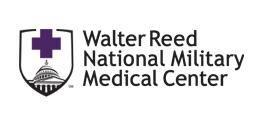
Walter Reed National Military Medical Center The Walter Reed National Military Medical Center is one...
Click here to add this to my saved trials
Mecosta County Medical Center Spectrum Health is a not-for-profit system of care dedicated to improving...
Click here to add this to my saved trials
Montana Cancer Consortium CCOP The Montana Cancer Consortium is a nonprofit organization whose mission is...
Click here to add this to my saved trials
Click here to add this to my saved trials
Billings Clinic Based in Billings, Montana, Billings Clinic is a community-governed health care organization consisting...
Click here to add this to my saved trials
Saint Vincent Healthcare The Sisters of Charity of Leavenworth, Kansas, founded St. Vincent Healthcare in...
Click here to add this to my saved trials
Click here to add this to my saved trials
Illinois CancerCare-Bloomington Illinois CancerCare, P.C. is a comprehensive practice treating patients withcancer andblood diseases. Our...
Click here to add this to my saved trials
Saint Alphonsus Regional Medical Center Saint Alphonsus Health System is a four-hospital regional, faith-based Catholic...
Click here to add this to my saved trials
Boulder Community Hospital Founded in 1922 as a community-owned and operated not-for-profit hospital, Boulder Community...
Click here to add this to my saved trials
Bozeman Deaconess Cancer Center Bozeman Deaconess Cancer Center provides the latest cancer technologies and treatment...
Click here to add this to my saved trials
Bozeman Deaconess Hospital Bozeman Deaconess Hospital is a Joint Commission certified, licensed Level III trauma...
Click here to add this to my saved trials
Click here to add this to my saved trials
Click here to add this to my saved trials
400 South Clark Street
Butte, Montana 59701
Butte, Montana 59701
406-723-2500

Saint James Community Hospital and Cancer Treatment Center St. James Healthcare has played an important...
Click here to add this to my saved trials
Click here to add this to my saved trials
Click here to add this to my saved trials
Illinois CancerCare - Canton Illinois CancerCare is one of the largest private oncology and hematology...
Click here to add this to my saved trials
Aultman Health Foundation The Aultman Foundation will raise and administer funds in order to support...
Click here to add this to my saved trials
Saint Francis Medical Center Saint Francis Medical Center is a 282-bed facility serving more than...
Click here to add this to my saved trials
Memorial Hospital Memorial Hospital is a vital force in establishing and maintaining the well-being of...
Click here to add this to my saved trials
Rocky Mountain Oncology Rocky Mountain Oncology Center is a spacious, comfortable, state-of-the-art 19,000 square foot...
Click here to add this to my saved trials
Click here to add this to my saved trials
Click here to add this to my saved trials
Click here to add this to my saved trials
Click here to add this to my saved trials
Hematology and Oncology Associates Northwestern Medical Faculty Foundation (the Foundation) is a premier, multi-specialty physician...
Click here to add this to my saved trials
Univ of Illinois A major research university in the heart of one of the world's...
Click here to add this to my saved trials
Click here to add this to my saved trials
9280 SE Sunnybrook Blvd #100
Clackamas, Oregon 97015
Clackamas, Oregon 97015
(503) 513-3300
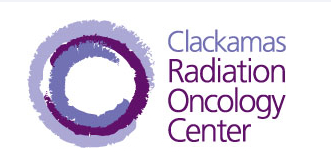
Clackamas Radiation Oncology Center State-of-the-art technology and compassionate care come together at Clackamas Radiation Oncology...
Click here to add this to my saved trials
Case Western Reserve Univ Continually ranked among America's best colleges, Case Western Reserve University has...
Click here to add this to my saved trials
Penrose-Saint Francis Healthcare Founded by the Sisters of St. Francis and the Sisters of Charity,...
Click here to add this to my saved trials
John B. Amos Cancer Center The John B. Amos Cancer Center located in Columbus, Georgia,...
Click here to add this to my saved trials
Geisinger Medical Center Since 1915, Geisinger Medical Center has been known as the region’s resource...
Click here to add this to my saved trials
Miami Valley Hospital Miami Valley Hospital (MVH) is passionate about providing the most recent medical...
Click here to add this to my saved trials
Grandview Hospital You'll feel like part of our family when you visit Grandview Medical Center...
Click here to add this to my saved trials
Good Samaritan Hospital - Dayton Good Samaritan Hospital (GSH) is passionate about providing the most...
Click here to add this to my saved trials
Samaritan North Health Center Good Samaritan Hospital (GSH) is passionate about providing the most recent...
Click here to add this to my saved trials
Dayton CCOP We are a regional non-profit cancer research consortium serving the Miami Valley area...
Click here to add this to my saved trials
Oakwood Hospital For more than 60 years, Oakwood Hospital - Dearborn (OH-D) has proudly served...
Click here to add this to my saved trials
Click here to add this to my saved trials
Decatur Memorial Hospital An American flag bearing only 48 stars waved above Decatur Memorial Hospital...
Click here to add this to my saved trials
Click here to add this to my saved trials
Click here to add this to my saved trials
Porter Adventist Hospital Founded in 1930, Porter Adventist Hospital has provided people throughout Denver and...
Click here to add this to my saved trials
Exempla Saint Joseph Hospital Founded in 1873 by the Sisters of Charity of Leavenworth, Saint...
Click here to add this to my saved trials
Rose Medical Center Well known as a Denver institution and a 9th Avenue landmark for...
Click here to add this to my saved trials
1720 S. Bellaire Street
Suite 701
Denver, Colorado 80222
Denver, Colorado 80222
(303) 777-2663
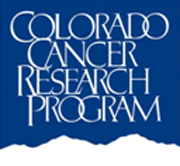
Colorado Cancer Research Program CCOP Colorado Cancer Research Program (CCRP) was established in 1983 and...
Click here to add this to my saved trials
Saint John Hospital and Medical Center Founded in 1952, St. John Hospital and Medical Center...
Click here to add this to my saved trials
Click here to add this to my saved trials
Click here to add this to my saved trials
Essentia Health Duluth Clinic CCOP The Essentia Health Cancer Center at Duluth Clinic 1st Street...
Click here to add this to my saved trials
Click here to add this to my saved trials
Click here to add this to my saved trials
Click here to add this to my saved trials
Illinois CancerCare - Eureka Illinois CancerCare is one of the largest private oncology and hematology...
Click here to add this to my saved trials
Roger Maris Cancer Center Sanford Health is an integrated health system headquartered in the Dakotas...
Click here to add this to my saved trials
Sanford Clinic North-Fargo Sanford Health is an integrated health system headquartered in the Dakotas and...
Click here to add this to my saved trials
Sanford Medical Center-Fargo Sanford Medical Center Fargo is a major medical center that provides comprehensive,...
Click here to add this to my saved trials
Piedmont Fayette Hospital Piedmont Fayette Hospital, a 172-bed community hospital, is among the most highly-ranked...
Click here to add this to my saved trials
